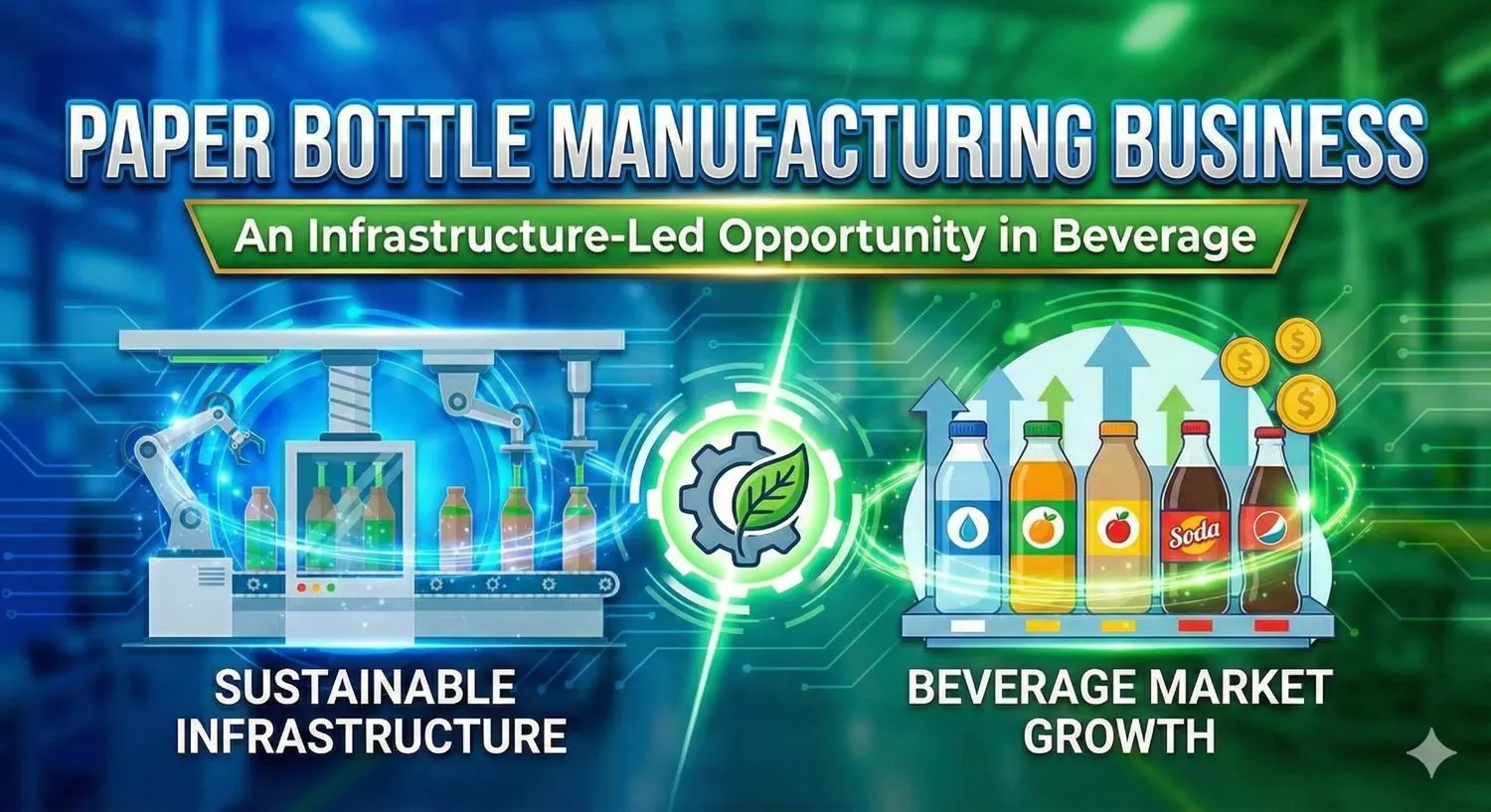The beauty and hygiene industry is experiencing rapid growth, driven by increasing consumer awareness, demand for personal grooming, and the rising preference for eco-friendly and natural products. Among the most lucrative sectors in this domain is manufacturing cosmetics, which ranges from skincare, haircare, and fragrances to makeup and personal care products. Parallelly, household cleaners form an essential product category that sees daily demand in homes, institutions, and industries. Entrepreneurs entering this space can tap into a high-potential market with the right formulations, regulatory compliance, and branding.
Contents
- 1 Starting a Business in Manufacturing Cosmetics and Household Cleaners
- 1.1 Market Overview and Trends
- 1.2 Types of Cosmetic Products to Manufacture
- 1.3 Key Steps in the Manufacturing Process
- 1.4 Regulatory Requirements
- 1.5 Manufacturing Household Cleaners
- 1.6 Investment and Setup Costs
- 1.7 Marketing and Branding Strategies
- 1.8 Challenges in the Industry
- 1.9 Sustainable and Herbal Product Opportunities
- 1.10 Future Outlook
- 1.11 Conclusion
Starting a Business in Manufacturing Cosmetics and Household Cleaners
Launching a venture in manufacturing cosmetics or household cleaners requires a mix of scientific understanding, business acumen, and market research. Before getting started, one must identify the niche and product range—be it herbal skincare, premium cosmetics, organic shampoos, disinfectants, toilet cleaners, or dishwashing liquids. Each of these comes with its own formulation needs, equipment, and target demographics.
Market Overview and Trends
The Indian cosmetic industry alone is expected to surpass USD 20 billion by 2025, driven by millennials, rising disposable income, and digital marketing. Simultaneously, the market for eco-friendly household cleaning products is growing due to increased health concerns and pandemic-driven hygiene habits.
Consumers are now seeking sustainable alternatives, free from harsh chemicals and synthetic fragrances. This trend favors local manufacturers who can innovate with plant-based ingredients, recyclable packaging, and cruelty-free production processes. Manufacturing cosmetics with Ayurvedic and herbal formulations has become particularly popular in India and abroad.
Types of Cosmetic Products to Manufacture
In manufacturing cosmetics, the selection of the product line depends on factors like target market, budget, expertise, and demand. Common product types include:
-
Skincare Products: Creams, lotions, moisturizers, serums, and sunscreens
-
Haircare Products: Shampoos, conditioners, oils, and hair masks
-
Makeup Products: Foundations, lipsticks, eyeshadows, and compacts
-
Fragrances: Perfumes, body sprays, and deodorants
-
Men’s Grooming: Beard oils, shaving gels, and aftershaves
Each category has different manufacturing requirements, safety protocols, and ingredient bases. For example, skincare products may need emulsifiers and stabilizers, while lipsticks require waxes and pigments.
Key Steps in the Manufacturing Process
To ensure product safety and quality, the manufacturing cosmetics process must follow a systematic procedure:
-
Research & Development (R&D): Begin by formulating the product. This involves selecting active ingredients, stabilizers, preservatives, colors, and fragrances. R&D also includes testing pH balance, texture, color fastness, and shelf life.
-
Sourcing Raw Materials: Ingredients must be sourced from certified suppliers. These may include plant extracts, essential oils, emulsifying agents, natural thickeners, and preservatives.
-
Production Equipment: Essential machinery includes mixing tanks, homogenizers, filling machines, and packaging lines. Small-scale manufacturers can start with semi-automatic equipment, while large-scale operations may use fully automated systems.
-
Batch Manufacturing: Products are mixed in controlled conditions, usually in stainless-steel vessels. Temperature and time play a crucial role in achieving consistency and stability.
-
Quality Control: Post-manufacturing, products must undergo microbiological and dermatological testing. This ensures the product is safe for skin contact and does not degrade during storage.
-
Packaging and Labeling: Use tamper-proof and attractive packaging. Labels must include product details, ingredient list, manufacturing date, expiry date, and regulatory compliance.
-
Storage and Distribution: Finished goods should be stored in a clean, dry environment and transported with care to prevent contamination or damage.
Regulatory Requirements
Compliance with national and international regulations is non-negotiable in manufacturing cosmetics. In India, the Central Drugs Standard Control Organization (CDSCO) governs cosmetics production. Key requirements include:
-
Obtaining a cosmetic manufacturing license under the Drugs and Cosmetics Act, 1940.
-
Ensuring Good Manufacturing Practices (GMP) and proper hygiene in the production facility.
-
Proper labeling with batch numbers, ingredients, expiry, and safety warnings.
-
Animal testing bans and cruelty-free certifications (if applicable).
-
Safety testing and dermatological assessment for new formulations.
Manufacturers exporting products must also meet regulations of the destination country such as FDA (USA), EU Cosmetic Regulations, or ASEAN guidelines.
Manufacturing Household Cleaners
The process for household cleaners is simpler but must adhere to environmental and safety guidelines. Common product categories include:
-
Surface Cleaners
-
Toilet and Floor Cleaners
-
Glass and Window Cleaners
-
Dishwashing Liquids
-
Fabric Softeners
Key ingredients include surfactants, solvents, pH regulators, disinfectants, and fragrances. Manufacturers must take extra precautions while handling chemicals such as sodium hypochlorite (used in bleach) and acids (for toilet cleaners).
The formulation process involves mixing chemicals in specific proportions, adjusting pH, adding color/fragrance, and finally, bottling and sealing. Worker safety, ventilation, and waste management are essential in such manufacturing units.
Investment and Setup Costs
Initial investment in manufacturing cosmetics depends on scale and automation level. A small-scale unit can be started with ?15–20 lakhs, including:
-
Rent and setup of production space
-
Machinery and lab equipment
-
Raw material inventory
-
Packaging materials
-
Licensing and legal compliance
-
Branding and initial marketing
For household cleaner units, the investment might be slightly lower due to cheaper ingredients and simpler processes. Bulk procurement of raw materials and packaging can significantly reduce costs per unit.
Marketing and Branding Strategies
Once production begins, success depends on how well the product is positioned in the market. In manufacturing cosmetics, branding is everything. Consumers often judge a cosmetic product by its packaging, claims, and reviews.
Tips for effective branding:
-
Highlight unique selling points: natural, organic, cruelty-free, paraben-free, etc.
-
Use social media influencers to promote products.
-
Participate in beauty expos and exhibitions.
-
Offer free samples and gift packs.
-
Build a strong e-commerce presence via platforms like Amazon, Flipkart, or your own website.
In the household cleaner segment, emphasize antibacterial efficacy, eco-friendliness, and value for money.
Challenges in the Industry
While the cosmetics and cleaning product market offers immense potential, manufacturers face several hurdles:
-
Intense competition from big brands and global players.
-
Difficulty in sourcing consistent quality raw materials.
-
Changing consumer preferences and ingredient bans.
-
Regulatory compliance, particularly for exports.
-
Counterfeiting and grey market risks.
Overcoming these challenges requires constant innovation, customer feedback loops, and staying updated with market trends and scientific developments.
Sustainable and Herbal Product Opportunities
There is growing demand for Ayurvedic and herbal-based products in manufacturing cosmetics. Using ingredients like aloe vera, turmeric, neem, sandalwood, and essential oils not only attracts a niche audience but also helps avoid harmful chemicals.
Similarly, household cleaners with bio-enzymes and vinegar-based solutions are becoming popular for being non-toxic and pet-friendly. This opens up room for eco-friendly startups that want to make an impact.
Future Outlook
The future of manufacturing cosmetics and household cleaners is bright, especially with the Indian government’s support for MSMEs, Make in India initiatives, and growing domestic demand. Opportunities for exports are also increasing with the rise in global demand for organic and sustainable products.
Tech-enabled formulations, AI-based product personalization, and blockchain traceability are upcoming trends that will redefine how products are created and consumed in this space.
Conclusion
Entering the world of manufacturing cosmetics and household cleaners is both exciting and rewarding. With the right blend of technical knowledge, market understanding, and consumer-centric branding, entrepreneurs can build scalable and sustainable businesses in this sector. Whether you focus on natural cosmetics or green cleaners, there is ample room for innovation and success. The key lies in quality, compliance, and connecting with a conscious customer base that values both performance and planet.
Visit the page Select and Choose the Right Business Startup for You for sorting out the questions arising in your mind before starting any business and know which start-up you can plan.
We, at NPCS, endeavor to make business selection a simple and convenient step for any entrepreneur/startup. Our expert team, by capitalizing on its dexterity and decade’s long experience in the field, has created a list of profitable ventures for entrepreneurs who wish to diversify or venture. The list so mentioned is updated regularly to give you a regular dose of new emerging opportunities.














